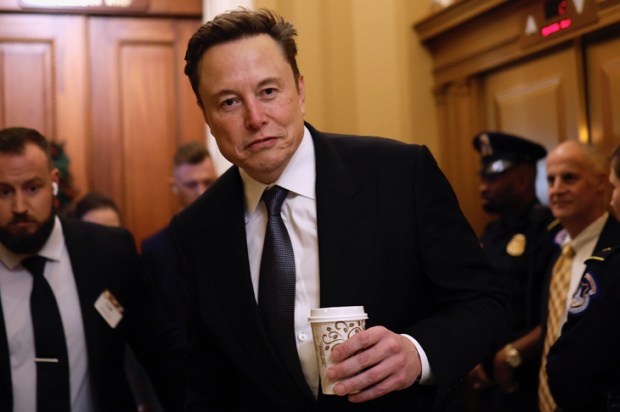The rapper Snoop Dogg headlined the Crypto Ball that was held in Washington on 17 January to celebrate the conversion to crypto of President Donald Trump, who had slammed digital assets as a ‘scam’, ‘not money’, enablers of the ‘drug trade’, and as ‘a disaster waiting to happen’.
The ball’s cost was among US$10 million crypto companies reportedly lavished on Trump’s inauguration. Those donations came on top of an estimated US$160 million the industry spent to propel crypto-friendly lawmakers from both parties into Congress.
During the gala that Trump’s son Eric attended, Trump sparked a speculative frenzy when he surprisingly unveiled a $Trump meme coin that quickly amassed a market capitalisation beyond US$15 billion. About 200 million tokens from a declared maximum limit of one billion were sold.
‘$Trump is currently the hottest digital meme on earth,’ Eric tweeted about what is really a token not a coin. These tokens are not a means of exchange, just something inspired by a joke, meme or an image – $Trump is an illustration with ‘Fight fight fight’ over a fist-clenched Trump in reference to his ‘battle-cry’ after July’s assassination attempt.
By Sunday, however, the virtual asset, 80 per cent owned by Trump entities, lost more than a third of its market value. But only because of the surprise launch of the $Melania meme coin – yep, named after Trump’s wife. About 170 million $Melania tokens from a declared maximum limit of one billion were sold – producing a market cap approaching US$2 billion.
Bitcoin on Inauguration Day set a fresh record high of US$109,241 just before Trump was sworn in at midday that Monday. The original crypto’s price later fell after Trump’s executive orders that day overlooked crypto.
The all-time high price meant bitcoin had soared 57 per cent since Trump’s election victory on comments he will establish a ‘strategic’ bitcoin reserve, designate crypto development a ‘national priority’, and on hopes a pro-crypto Congress will ease curbs on an industry that is barely policed.
On Trump’s second day, the original cryptocurrency partially rebounded after the new crypto-friendly leadership at the market regulator, the Securities and Exchange Commission, said it would establish a team to develop a regulatory framework for digital assets. The same day the Financial Times reported the Trump-backed World Liberty Financial crypto venture that was created in September had sold 21 billion tokens and raised US$1 billion for undeclared use.
Late Wednesday, voilà! Trump issued an executive order to create a crypto ‘working group’ of key agencies to advise on digital assets, which were defined as any digital representation of value recorded on a distributed ledger. The statement said the industry has a ‘crucial role’ to fulfil in US economic development, global leadership and innovation.
On Thursday, came the news that the SEC had rescinded guidance that made it costly for Wall Street firms to hold digital assets for clients, thus they had hindered crypto adoption. On Friday, the $Trump and $Melanie tokens had a combined market cap of about US$6 billion. What to make of these events? Three things stand out, apart from how speculation reigns.
The first is the extent of Trump’s conflict of interest in that he’s profiting from an industry he intends to deregulate and promote.
When people buy a meme token, they hand over money and their names enter a ledger. That’s it. Buyers receive nothing but the hope someone will pay more for tokens that are unconnected to any asset. The lack of an income stream means a token’s price is speculation.
Those that issue tokens, however, can instantly reap vast windfalls. When issuers sell more tokens, they get richer while the price drop on greater supply hurts pre-existing holders. No fraud is occurring because there’s no deception.
The most controversial aspect of the Trump tokens is the US president has created schemes whereby people can legally give him unlimited money because there’s no ceiling to the number of tokens that can be issued, nor any disclosure of trading activity.
Ethical bodies erupted. Anthony Scaramucci, a former Trump associate, called it ‘Idi Amin-level corruption’.
It’s not just Trump haters who are upset. Even crypto executives in posts and interviews slammed Trump for exploiting supporters and hurting the credibility of an industry damaged by the collapse of Sam Bankman-Fried’s trading platform FTX in 2022. Ethereum creator Vitalik Buterin said the Trump tokens were the ‘perfect corruption vehicle’. Ari Paul, CIO at BlackTower Capital, said Trump was ‘fleecing people for billions’. Danny Scott, CEO of CoinCorner, said Trump’s actions made ‘a mockery of the industry’.
The second point of note is that Trump has shown how easily people can monetise fame. Imagine how much the famous could milk from fans for something useless that is likely to become worthless – the usual fate within hours of most meme tokens.
The third takeout is that taxpayers risk vast capital losses if Congress establishes a strategic crypto reserve – the main quality of any asset deemed worthy of ‘reserve’ status is that it holds its value. On Inauguration Day, eight US states had introduced bills to allow crypto stockpiles and five others are considering such plans, Bloomberg reported. Such schemes would be rorts that reward political donors, issuers and owners.
No one can trust cryptos to hold their value. Even the embrace of Trump, Congress and US states can’t fix that cryptos have no intrinsic value, come with no unique payment advantage that warrants mainstream, (non-criminal) use, are hard to transact and store, and are governed under elastic rules.
The takeout from these takeouts is the Trump administration is unethical and so grasping it’s prepared to harm those it should protect. Most at risk are Republican voters who trust their president.
It’s too early, of course, to be definitive about the new Trump regime. But the ethical boundaries already trampled on are so egregious that even the unscrupulous crypto industry is shocked. To be sure, a crypto boom that enriches many is likely before any bust. But that’s how Ponzi schemes work, the best way to think of the crypto business model. Bitcoin and other cryptos could have strategic value for countries seeking to escape US financial sanctions and for those with collapsed economies and worthless currencies. But these motives don’t apply to the US. What’s Trump’s ‘national priority’ about?
The answer is a huckster lives in the White House. Snoop Dogg’s choice to sing the Bob Marley hit ‘Everything’s gonna be alright’ at the crypto ball is unlikely to prove prophetic.
Got something to add? Join the discussion and comment below.
You might disagree with half of it, but you’ll enjoy reading all of it. Try your first month for free, then just $2 a week for the remainder of your first year.













